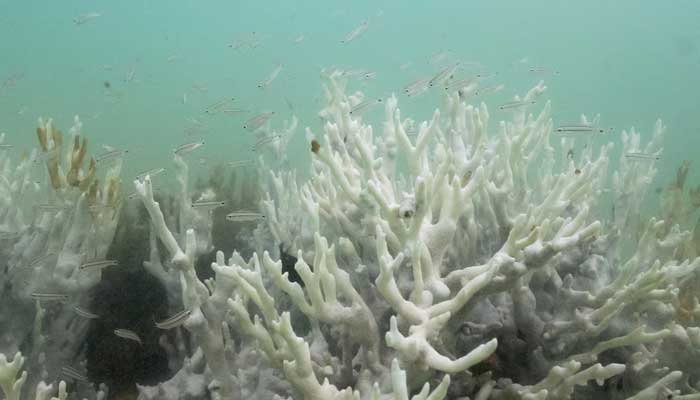Select Language:
Global warming is reaching dangerous new levels faster than anticipated, leading to an almost irreversible decline in the world’s coral reefs. Scientists on Monday described this as the first “tipping point” in the collapse of ecosystems driven by climate change.
The alarm comes from the Global Tipping Points report, authored by 160 researchers worldwide. This groundbreaking study synthesizes crucial science to estimate irreversible thresholds, just weeks before the COP30 climate summit, set to take place near the Amazon rainforest in Brazil.
The same Amazon system faces possible collapse if the global temperature rises more than 1.5 degrees Celsius due to ongoing deforestation, the report warns, lowering previous estimates of the critical temperature threshold for the region.
Additionally, rising temperatures threaten to disrupt the Atlantic Meridional Overturning Circulation (AMOC), a vital ocean current system that moderates winter temperatures in northern Europe.
“Change is happening rapidly now, tragically, in parts of the climate and biosphere,” said Tim Lenton, an environmental scientist at the University of Exeter and the lead author of the study.
Some encouraging signs include progress in phasing out fossil fuels, which have been the primary drivers of climate change. For example, renewable energy sources generated more electricity than coal for the first time this year, according to data from the nonprofit think tank Ember.
“We don’t want people to be overwhelmed and powerless,” Lenton added. “We still have some agency.”
Scientists urged nations attending COP30 in November to accelerate efforts to reduce carbon emissions that cause global warming.
Unexpectedly rapid changes are already evident in nature, with average global temperatures now estimated to be 1.3 to 1.4 degrees Celsius (2.3 to 2.5 degrees Fahrenheit) above preindustrial levels, based on data from UN and EU scientific agencies.
The past two years marked Earth’s hottest on record, with marine heatwaves stressing 84% of the planet’s reefs, leading to bleaching and, in some cases, death. Coral reefs support roughly a quarter of all marine life.
To enable coral recovery, scientists say the world must significantly ramp up climate action to bring global temperatures back down to just 1 degree Celsius above preindustrial levels.
“Each year, the scope and severity of climate change’s impacts continue to grow,” declared Pep Canadell, a senior scientist at Australia’s CSIRO Climate Science Centre.
Currently, projections based on existing national policies suggest the world is on track for approximately 3.1 degrees Celsius of warming this century.







